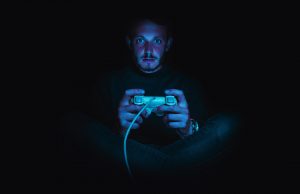
We’re all guilty of it—scrolling enviously through our feeds, staring at all the pretty pictures and reading about our friends’ “glamorous” lives. But here’s the thing: the grass isn’t always greener on the other side. Have you ever heard someone refer to social media as a highlight reel? This means that we only put the best parts of ourselves on display. We only post the most flattering of pictures on Instagram. We only share the most gratifying updates on Facebook. All of those pretty pictures and glamourous facades are a mere piece of reality. And failing to acknowledge this can do tremendous harm to our mental health, as we fall into a little trap called the comparison game.
The Comparison Game
This game is self-explanatory: we compare our own lives to those that are painted so perfectly on social media, and we start to feel less than. Registered Psychotherapist Juliann Rasanayagam knows just how damaging this can be: “I am a young professional who once had a social media account with every known social media platform. During the early stages of my career, I had the feeling that I was behind my friends. They had their careers laid out for them and some were already on to purchasing their first homes. Meanwhile, I was still completing my Master’s degree and living at home. I was already feeling down on myself and my exposure to social media made this worse.
I was comparing myself to my friends. I would see them going on adventures, eating exotic and expensive foods, going to concerts, etc. and I couldn’t help feeling bad about myself. I then made a conscious decision to remove myself from a few platforms (Snapchat especially) and weeded out those who didn’t make me feel good about myself. It turned out to be a great decision because I was no longer comparing myself and it left my self-esteem intact.
Depression can be partially explained by the nature of our thoughts. Negative, self-depreciating thoughts can induce depression. When these thoughts are left unchallenged, we believe them. In the case of social media, a lot of our thoughts are derived from comparing lives. Social media activity can lead to depression because we are exposed to a filtered perspective. We only post and see good news. We never expose or see others exposing vulnerabilities and insecurities—it is these things that make us human, and yet, we don’t share this side to us.
We may see a mom who posts a great picture of herself and her kids at the zoo, having the time of their lives and we assume that she’s super mom. Our first thought is, ‘Why can’t I be super mom?’ which then creates a cascade effect that can lead to our own depression if this occurs over and over again. Meanwhile, we may never know that she’s got 13 loads of laundry and a sink full of dishes just sitting there. No one really advertises their burnouts. You only see what is put out there.”
Have a Healthy Relationship With Social Media
1) Spend real, meaningful time with your friends.
Social media should never come before real, meaningful social interactions with your loved ones. Sure, show your support for them by liking their photos and leaving cute comments on their profiles. But above all else, show them that love and support in real life. And reap the return of truly caring about as well as prioritizing these relationships.
2) Be intentional about your time on social media.
In addition, make it your goal to have an intention every time you log into Facebook or Instagram or Twitter. (And no, mindless scrolling does not count). Is there important news you want to share? Are you signing in to post pictures of your vacation? To check in on a distant relative? If you have an intention in mind, you’re less likely to get sucked into the black hole that social media can be.
3) Consider removing apps from your phone.
If it’s hard for you to limit or adjust the amount of time you spend on social media, consider deleting your apps from your phone like Rasanayagam did. Then, the only way for you to check your accounts is if you get on your laptop. This’ll help to prevent that mindless scrolling you do at work, at the dinner table, and so on.
4) Think before you post, share, or follow.
You should also get into the habit of thinking before you engage in any way on social media. Hopefully the last tip will help you do so, but pausing to think for a second before you post, share, or follow can go a long way. For example, consider who you’re about to follow and why. Is following them going to do you any good or will it just make you feel bad about yourself?
5) Stay grounded.
And finally, stay grounded amidst of all the social media drama. Don’t let comments, likes, and followers rule your life. The virtual world may be appealing (and addictive), but it is a difficult one to master—the real world, on the other hand, while also a tough one to navigate, is worth all the hassle.
Let’s keep in touch! Sign up to receive our newsletter:
Start a Relationship with An Exceptional Counselor
- Skilled and caring professional counselors
- Accepting all major and most insurances
- High-touch customer service & premium benefits
- Same- or next-day appointments
- Ultra-flexible 23.5hr cancellations













